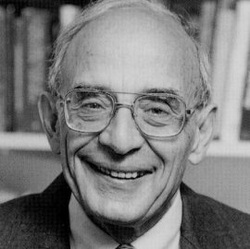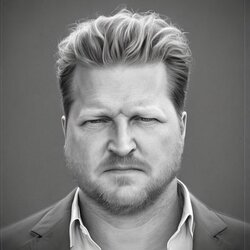 Obituary for Chris Argyris (1923 –2013), father of Organizational Learning From the Society for Organizational Learning (SoL) We are writing to you in memory of Chris Argyris, the father of organizational learning, who died on November 16, 2013. Diana Smith, a long-time SoL member and colleague of Chris Argyris remembers his work and his legacy. We are all deeply saddened by this loss. Chris Argyris (1923 –2013) On November 16th, Chris Argyris died peacefully, surrounded by his family after living a full and meaningful life. During his 90 years, Chris served in World War II, produced over 30 books and 150 articles, taught at Yale’s School of Management and at Harvard’s Business School and Graduate School of Education, served on the Boards of the Monitor Group and Greenwich Research Associates, and earned 14 honorary doctorates. He leaves behind a body of work and a community of inquiry that will forever shape how we think about leaders, organizations, theory-building, research, and practice. As the father of organizational learning, Chris exemplified what he taught: the curiosity and courage it takes to sustain learning, even in the face of threat; the hope and humility it takes to create a better world; and the unbounded generativity and generosity it takes not just to create new ideas, but to forge collaborations across disciplines and to mentor a wide range of scholars and practitioners. But it was Chris’s unique ability to empathize with people’s experiences and circumstances—while still holding them accountable for changing them—that affected me most. This was his ticket into the hearts and minds of thousands of people around the world—government and corporate leaders, students, professors, and colleagues alike. It certainly was for me. Thirty-five years ago, while looking at a catalogue for the Harvard Graduate School of Education, where Chris was teaching at the time, my father noticed Chris’s name. “Chris Argyris? Chris Argyris?” he asked excitedly. “He teaches there?” “It looks that way,” I said, unaware of the name and surprised by the reaction. “Well, you have to take his course. He was one of only three consultants who came through IBM that I had the greatest respect for. He’s absolutely brilliant.” That coming from my father was exceptionally high praise. As a member of IBM’s Management Committee in the 1960s, he had the highest standards when it came to rigor, thought, and excellence. Curious, I asked: “So who are the other two?” “Jay Forrester and Herb Simon.” Over the next three decades, I came to fully appreciate why my Dad reacted the way he did, and in what fine company he had placed Chris. I like to think of Chris now in that kind of company, along with his most generative collaborator, Don Schön, with whom he wrote the seminal books, Theory in Practice (1974) and Organizational Learning (1978). I can just see him—a broad smile lighting his face, eyes full of curiosity—asking the unexpected question, listening for a toehold to advance learning, and not stopping until something new comes of it. Chris leaves behind his beloved wife of 63 years, Renee, and his talented and devoted children, Dianne and Phil, two apples who did not fall far from the tree (read their tribute). The Argyris Family Tribute In the days since Chris’s death, his family has been deeply moved by the outpouring of love and respect for him from all over the world. They are comforted by the fact that he will live on through his students and colleagues. They are honored to know that he was part of the Greatest Generation that served in WW2. They are deeply proud of his 14 honorary doctorates, 30+ books and 150+ articles, and long and distinguished career at Yale and Harvard Universities. What they are most proud of, however, is that he lived a very simple life, free from pretense. He valued the same qualities in anyone whether they were a cabinet member of the US government, a first grade teacher or a janitor. If you could look honestly at yourself and others, if you were engaged with life, if you were ready for a good debate, he was on your side. While Chris was known as a tough teacher, his students often spoke of his personal kindness. As one student said, “I had to tell him my paper was going to be late because my father had just been diagnosed with cancer. I went in feeling incredibly nervous. He was so compassionate that I burst into tears and left feeling cared for and comforted.” Chris grew up in urban New Jersey to found great comfort in the outdoors. He was an Eagle Scout. He loved nothing better than to take his son Phill and his friends to the White Mountains, up the Tuckerman Ravine Trail, or on overnight trips to the Hutsman’s Cabin, just south of Mount Washington, in February! Chris loved tending to his yard. On any given weekend, he could be found raking, mowing the lawn, chopping wood and weeding. He seemed to have an uncanny knack for never getting poison ivy, and the more roots he pulled up the better. Chris walked or jogged 3–5 miles every day of his life until he was 89. It was his best venue for thinking through tough problems. Long before walking became fashionable, Chris became known in the neighborhood as “that professor who walks.” Chris shared with his family his love of music and movies. To hear Louis Armstrong, Ella Fitzgerald or Andres Segovia gave him enormous pleasure. Movies were another great love, especially the old classics. For Chris and his family, a perfect evening was one spent with Casablanca, Singing in the Rain, the Marx brothers’ Night at the Opera, or High Noon. Movie nights could become competitive – who was that actor or actress, and where had they seen her before? Chris’ enjoyment of movie night was always enhanced with his favorite ice cream, Fudge Ripple. If you topped it off with grapes, so much the better. Above all, Chris loved his family. He met his wife Renee when they literally bumped into each other at a wedding, at which point he announced to all his friends that she was the woman he would marry. They celebrated their 63rd wedding anniversary this year. Though his last two years were difficult ones, he gave great comfort to his family through his unusually explicit declarations of love. They came in all shapes and sizes during those years. One evening during a discussion at dinner, he raised his hand, called for quiet, and said, “I just have to tell my wife how beautiful she is.” At another dinner when his daughter Dianne was being quite silly, Renee turned to Chris and joked, “What are we going to do with her?” “Enjoy her,” Chris replied. It was very unusual for Chris to show any kind of dependence, but in the last years he was never as secure as when his son Phill was with him. If he went a couple of hours without seeing him, it would be “Where’s Phill? Is Phill going to be here?” And when Phill would walk through the door, the look of love and trust Chris gave him was beautiful. Chris’s family wants to express their heartfelt thanks for everyone.
0 Comments
|
AuthorDirector Archives
January 2023
Categories
All
|
Photos from europeanspaceagency, ▓▒░ TORLEY ░▒▓, Lori_NY, Dean_Groom, dalecruse, Fin Cosplay & Amigurumi, Iain Farrell, erin_everlasting, palindrome6996, Easa Shamih (eEko) | P.h.o.t.o.g.r.a.p.h.y, markhillary, Matt McGee, Marc_Smith, woodleywonderworks, agustilopez, rachel_titiriga, SeaDave, cheri lucas., Caio H. Nunes, grabbingsand, Armchair Aviator, quinn.anya, Jennifer Kumar, billaday, edtechworkshop, chucknado, purpleslog, yugenro, christianeager, dground, GlasgowAmateur, expertinfantry, shixart1985 (CC BY 2.0), OiMax, Wilfried Martens Centre for European Studies, PEO, Assembled Chemical Weapons Alternatives, IBM Research, shixart1985, markus119, shixart1985, shixart1985, Wilfried Martens Centre for European Studies


 RSS Feed
RSS Feed
